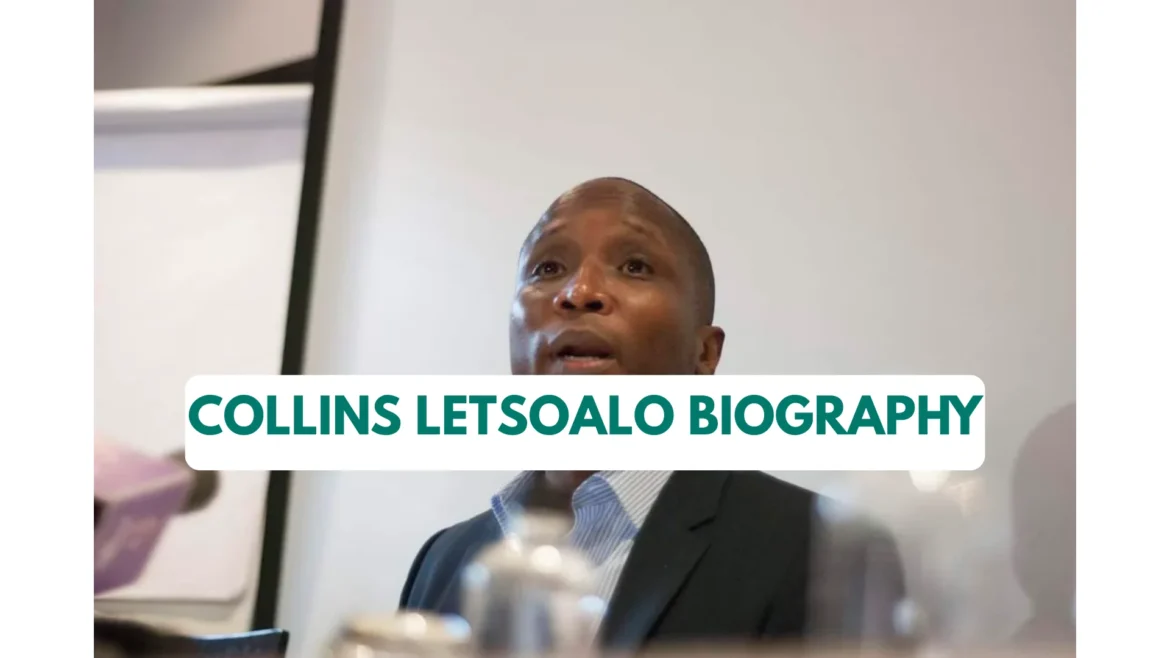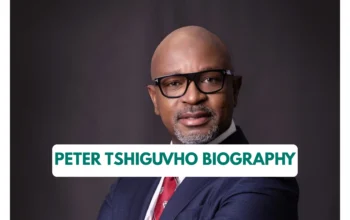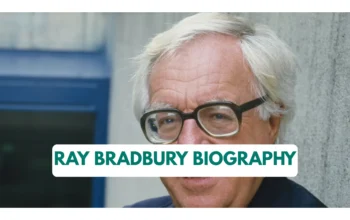Collins Letsoalo is a high-profile South African public servant and corporate leader whose career has taken him from regional roots to the top of one of the country’s most watched state entities — the Road Accident Fund (RAF).
Known for his technocratic background in economics and public finance, Letsoalo’s tenure at the RAF and previous roles in state-owned entities attracted both praise for turnaround efforts and intense scrutiny for governance, procurement and interpersonal conflicts.
This biography explores his early life, education, career trajectory, public controversies, legal battles and the latest developments shaping his legacy.
Early life and education
Collins Phutjane Letsoalo was born in Limpopo province (reports often reference Ga-Molepo as his birthplace). He trained as an economist and built a professional foundation in treasury, central banking and public finance. Public records and press coverage of his appointments note he holds a Bachelor of Commerce in Economics, an Advanced Diploma in Central Banking, a Diploma in Treasury Management and Trade Finance, and related postgraduate qualifications — credentials that helped position him for senior roles in government and state entities.
Early career — Reserve Bank, Treasury and state enterprises
Before his high-profile leadership roles, Letsoalo served in positions that engaged with financial management and restructuring of state-owned enterprises. Over time he worked in environments that required negotiating between political oversight, boards and frontline operational teams — experience that would prove crucial when he later took top executive roles in transport-related agencies. Some of his early public-sector roles drew attention for the decisions he made around procurement and restructuring, themes that would recur during later appointments.
Rise to national prominence — PRASA and other senior roles
Letsoalo’s rise included senior appointments at the Passenger Rail Agency of South Africa (PRASA), where his tenure was controversial and ended in a public removal in 2017 amid disputes over remuneration and management style. That episode marked an early flashpoint and established Letsoalo as a figure both celebrated by supporters who saw him as a decisive manager and criticized by detractors who argued his approach provoked instability.
Appointment as RAF CEO
In 2019 Letsoalo was appointed CEO of the Road Accident Fund — a state institution responsible for compensating road accident victims. His appointment was approved by Cabinet in 2020 and was publicly framed as bringing technocratic expertise to an entity that had long struggled with financial strain, backlog of claims, and governance challenges. The RAF role elevated Letsoalo into national headlines and placed him squarely at the intersection of service delivery, legal reform and heavy public scrutiny.
What he set out to do at the RAF
Letsoalo arrived at the RAF with an agenda framed as institutional turnaround: cutting waste, tightening procurement, revising the panel of legal service providers and restructuring operations to deliver faster, more sustainable claimant outcomes. The strategy was lauded by some observers for confronting entrenched costs and slow processes. However, those changes also disrupted longstanding arrangements and sparked resistance from some legal firms, unions and political actors who argued the changes were abrupt and unfair.
Controversies and legal challenges
During his time at the RAF and in earlier roles, Letsoalo faced multiple public and legal challenges. Some law firms and interest groups launched court cases and removal applications challenging his appointment or decisions, alleging misrepresentation or procedural irregularities. Labour unions and practitioner groups also clashed with the RAF leadership over restructuring and contractual decisions. Several media investigations and parliamentary queries later expanded the spotlight on governance decisions taken during his tenure. These disputes culminated in formal parliamentary scrutiny and court proceedings.
Recent high-profile events: suspension, SCOPA and subpoenas
In 2024–2025 Letsoalo’s tenure reached a boiling point. Parliamentary oversight bodies, including the Standing Committee on Public Accounts (SCOPA), moved to summon him to answer questions about procurement, the termination of attorney panels, personal security expenditures and alleged irregularities. On multiple occasions he did not appear as expected at committee hearings, which prompted calls from some political parties for his prosecution for defying parliamentary summonses. The RAF board later placed him on special leave and, as coverage shows, proceedings were initiated that led to suspension and further inquiries. These events have shaped public perceptions and remain active topics in South African political reporting.
Public perception — polarizing figure
Collins Letsoalo’s public image is deeply polarized. Supporters — including some technocrats and political allies — describe him as a necessary disruptor who sought to bring fiscal discipline and structural reform to a battered institution. Critics accuse him of heavy-handedness, insufficient consultation, and actions that triggered legitimate legal and governance challenges. The debate around his style and substance illustrates the broader tension in South Africa between rapid institutional reform and established legal/administrative safeguards.
Key lessons from Letsoalo’s career
- Technocratic skill vs. stakeholder buy-in: Technical fixes succeed only when paired with meaningful consultation.
- Transparency matters: High-impact decisions in public institutions invite public records, courts and parliamentary review.
- Public leadership is political: Even successfully executed reforms can generate political backlash if not managed with care.
FAQs
Who is Collins Letsoalo?
Collins Letsoalo is a South African economist and public servant who has held senior roles in state institutions, most notably as CEO of the Road Accident Fund (RAF).
When was he appointed RAF CEO?
His appointment was made public and approved by Cabinet around 2019–2020.
What controversies has he faced?
Letsoalo has faced controversies around procurement decisions, termination of attorney panels, alleged misrepresentations in appointment challenges, and disputes that led to parliamentary scrutiny and suspension.
Has he been subpoenaed by Parliament?
Yes — parliamentary committees, including SCOPA, summoned him to testify about RAF operations; his absence at some hearings generated calls for prosecution for non-compliance.
What’s the current status (latest update)?
As of the latest widely reported coverage, Letsoalo has been subject to parliamentary subpoenas, board action (special leave and suspension) and ongoing inquiries. For the most current status, consult major South African news outlets, parliamentary press releases and official RAF statements.
Conclusion
Collins Letsoalo’s career is a study in the complexities of public-sector leadership. Backed by strong economic and finance credentials, he rose to roles that required decisive action. Yet reforming troubled public institutions is rarely a straight path — technical solutions collide with established networks, legal frameworks and political forces. Whether history judges Letsoalo primarily as a reformer who confronted dysfunction or as a polarizing leader whose methods courted legal and political peril will depend on ongoing inquiries, legal outcomes and the long-term performance of the RAF. For now, his biography is a reminder that public leadership demands not just technical skill, but also procedural rigor, stakeholder management and political savvy




